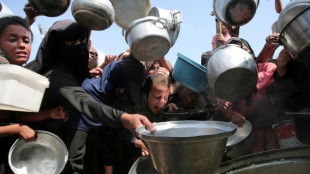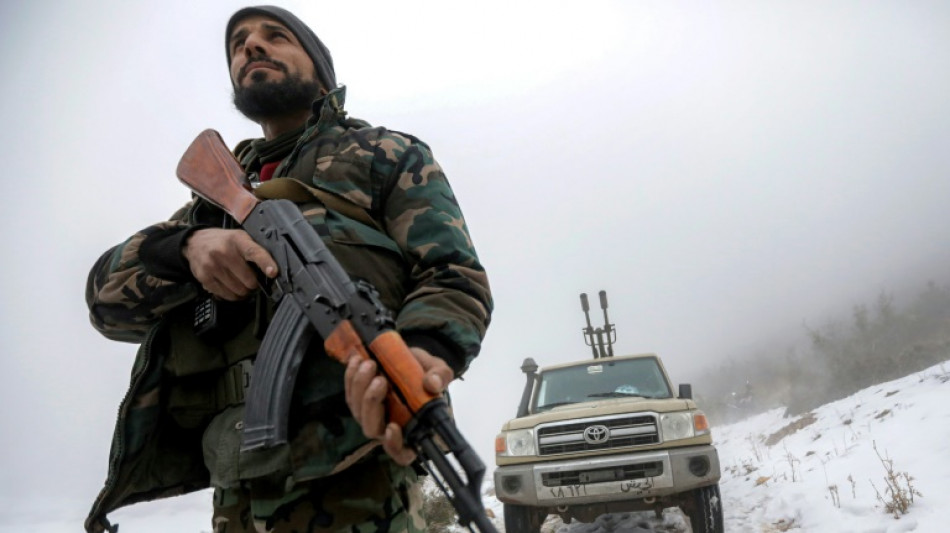
-
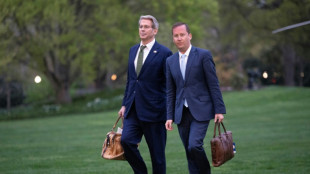 Trump names close political aide as ambassador to India
Trump names close political aide as ambassador to India
-
Fraser-Pryce aiming to end career in 'magnificent way' at Tokyo worlds

-
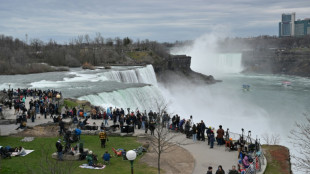 Multiple tourists killed in New York state bus crash
Multiple tourists killed in New York state bus crash
-
Gauff looks to future with bold coaching change before US Open

-
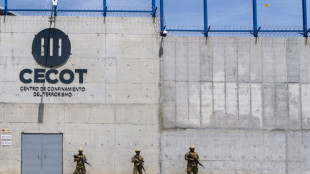 Salvadoran man at center of Trump deportations row freed
Salvadoran man at center of Trump deportations row freed
-
Top-ranked Sabalenka seeks rare US Open repeat

-
 Chelsea thrash West Ham to pile pressure on former boss Potter
Chelsea thrash West Ham to pile pressure on former boss Potter
-
Kane toasts 'instant connection' with Diaz after Bayern romp

-
 Ruiz goal gives rusty PSG narrow win over Angers in Ligue 1
Ruiz goal gives rusty PSG narrow win over Angers in Ligue 1
-
Salvador man at center of Trump deportations row freed
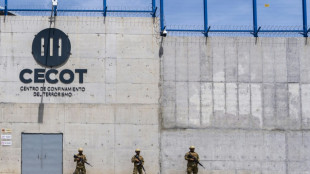
-
 Kane hits hat trick as Bayern thump Leipzig in Bundesliga opener
Kane hits hat trick as Bayern thump Leipzig in Bundesliga opener
-
England begin bid for Women's Rugby World Cup by thrashing United States

-
 Hopes dim for Putin-Zelensky peace summit
Hopes dim for Putin-Zelensky peace summit
-
Sinner in race for fitness with US Open title defense looms

-
 Jefferson-Wooden cements Tokyo sprint favourite status with Brussels win
Jefferson-Wooden cements Tokyo sprint favourite status with Brussels win
-
Dutch foreign minister resigns over Israel sanctions

-
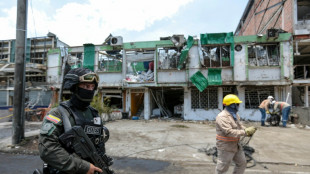 Colombia reels after twin guerrilla attacks kill 19
Colombia reels after twin guerrilla attacks kill 19
-
'Zero doubts' as Jefferson-Wooden scorches to Brussels 100m win

-
 Fleetwood ties Henley for PGA Tour Championship lead
Fleetwood ties Henley for PGA Tour Championship lead
-
Detained Chileans freed two days after football brawl in Argentina
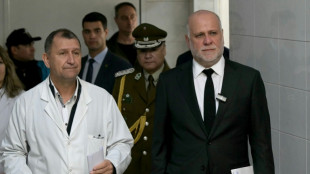
-
 Jefferson-Wooden scorches to Brussels Diamond League 100m win
Jefferson-Wooden scorches to Brussels Diamond League 100m win
-
Trump says 2026 World Cup draw set for December in Washington

-
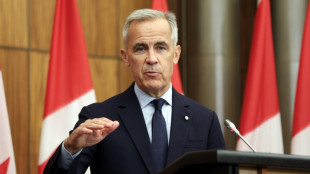 Canada removing tariffs on US goods compliant with free trade deal
Canada removing tariffs on US goods compliant with free trade deal
-
US Fed chair opens door to rate cut as Trump steps up pressure
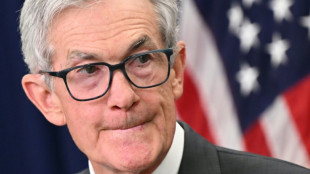
-
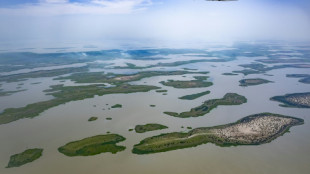 Boko Haram denies Nigerien army claim to have killed leader
Boko Haram denies Nigerien army claim to have killed leader
-
Ukrainian refuses German extradition in Nord Stream sabotage case
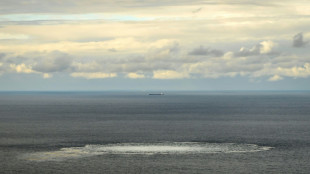
-
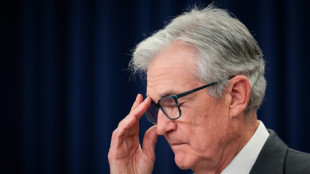 Wall Street rallies, dollar drops as Fed chief fuels rate cut hopes
Wall Street rallies, dollar drops as Fed chief fuels rate cut hopes
-
Spurs boss Frank only wants committed signings after Eze snub

-
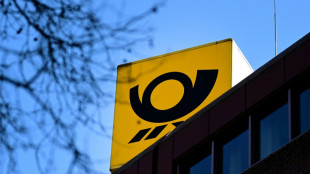 German, French post offices restrict packages to US over tariffs
German, French post offices restrict packages to US over tariffs
-
Australian sprinter Asfoora rebounds to land Nunthorpe Stakes
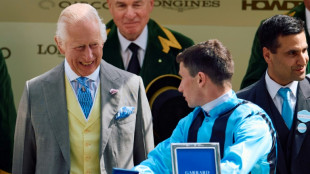
-
 Embattled Bordeaux winemakers see Trump's tariffs as latest blow
Embattled Bordeaux winemakers see Trump's tariffs as latest blow
-
Russia rejects Zelensky meeting as diplomatic tension simmers
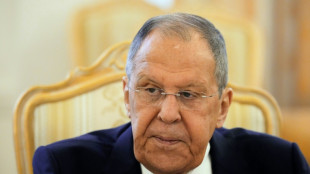
-
 UN declares famine in Gaza, Israel rejects 'lie'
UN declares famine in Gaza, Israel rejects 'lie'
-
FBI raids home of outspoken Trump critic John Bolton
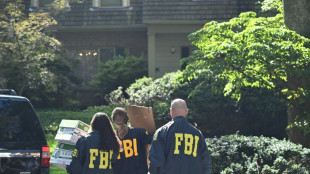
-
 Nuno 'worried' for job over relationship with Forest owner
Nuno 'worried' for job over relationship with Forest owner
-
Iran, Europeans to meet as snapback sanctions loom
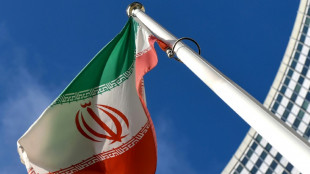
-
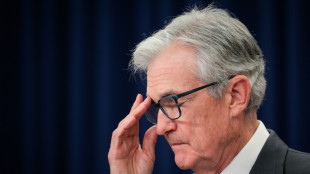 Wall Street rallies as Fed chief fuels rate cut hopes
Wall Street rallies as Fed chief fuels rate cut hopes
-
Eze move a sign of Arsenal's 'ambition', says Arteta

-
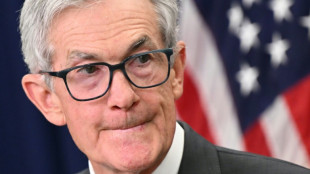 US Fed chair leaves door open to rate cut, facing down Trump pressure
US Fed chair leaves door open to rate cut, facing down Trump pressure
-
Spain's deadly wildfires ignite political blame game
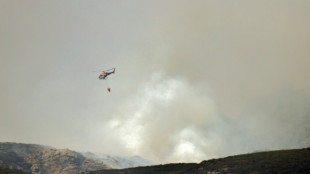
-
 Man Utd outcasts could return, says Amorim
Man Utd outcasts could return, says Amorim
-
Rabiot-Rowe altercation a 'bar fight', says De Zerbi

-
 Fit-again Rodri still 'best in the world' for Guardiola
Fit-again Rodri still 'best in the world' for Guardiola
-
TikTok's UK content moderation jobs at risk in AI shift

-
 NATO chief calls for 'robust security guarantees' on Ukraine visit
NATO chief calls for 'robust security guarantees' on Ukraine visit
-
Bayeux Tapestry not too fragile to move to UK, French official says
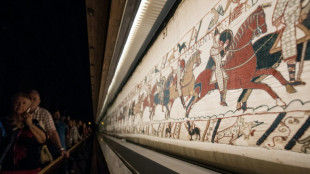
-
 UN declares famine in Gaza
UN declares famine in Gaza
-
Newcastle can't win in Isak stand-off, says Howe

-
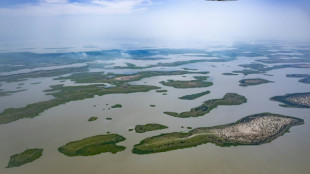 Doubts over Niger claim that a Boko Haram leader killed
Doubts over Niger claim that a Boko Haram leader killed
-
Teenager Wanner signs with Eindhoven from Bayern


Drugs, weapons in Syria borderland where Hezbollah held sway
In a desolate area of Syria where Lebanese militant group Hezbollah once held sway, security forces shot open the gates to an abandoned building and found a defunct drug factory.
Syria's new authorities launched a security campaign last week around Qusayr at the porous Lebanese border, cracking down on drug and weapons smugglers.
They have also accused Lebanon's Hezbollah, which for years propped up Bashar al-Assad, of firing at them in clashes in the weeks since his ouster.
"We've begun to comb factories used by Hezbollah and remnants of the defunct regime," said Major Nadim Madkhana, who heads Syria's border security force in Homs province near Lebanon.
Before Syria's war erupted in 2011, Syrians and Lebanese lived side by side in the border area -- a mostly tribal region long renowned for smuggling.
In April 2013, Hezbollah announced it was fighting alongside Assad's forces and leading battles in the Qusayr area, a rebel stronghold at the time.
After weeks of battles that displaced thousands of Syrians, Hezbollah seized control of the area, establishing bases and weapons depots and digging tunnels -- which Israel repeatedly targeted in subsequent years.
Hezbollah's support for Assad was as much an act of loyalty for its fellow member of the "axis of resistance" as it was a necessity for its own survival, with Syria acting as its weapons conduit from Iran.
"Under the defunct regime, this area was an economic lifeline for Hezbollah and drug and arms traders traffickers," Madkhana said.
In the building raided by Syrian border security, AFP correspondents saw large bags of captagon pills -- a potent synthetic drug mass-produced under Assad that sparked an addiction crisis in the region.
Both the sanctions-hit ousted government and Hezbollah, which is proscribed as a terrorist organisation, have faced accusations of using the captagon trade to finance themselves.
In the months leading up to Assad's December 8 ouster, Hezbollah pulled many of its militants back to Lebanon to fight an all-out war with Israel.
But it was only after his overthrow that it rushed the majority of its forces and allies out of the country.
Attesting to the speed of the pullout, plates of food were left to rot in the kitchen of one facility.
- Drug traffickers -
Snow-speckled dirt tracks leading to the facilities still bear marks left by barricades that smugglers had set up "to delay our advance", Madkhana said.
In recent days, Syrian forces have clashed with "Hezbollah loyalists and regime remnants" in the area, some of them armed with rocket launchers, he added.
Charred vehicles lay by the side of the road, near damaged luxury villas built by drug traffickers, residents told AFP.
Hezbollah provided cover for Lebanese and Syrian smugglers operating at the border, according to residents of the area.
After more than five decades of rule by the Assads, the rebels that once fought his army are now running the country, and that has had a knock-on effect on neighbouring Lebanon.
Earlier this week, Madkhana told AFP Syrian forces had started coordinating with the Lebanese army at the border.
Last week, the Lebanese army said it was responding to incoming fire from across the Syrian border.
Syria shares a 330-kilometre (205-mile) border with Lebanon, with no official demarcation, making it ideal turf for smugglers.
- 'Banned from returning' -
Since Assad's ouster, Syrians displaced during the war have started returning home to Qusayr.
After spending almost half of his life as a refugee in northern Lebanon, Hassan Amer, 21, was thrilled to return.
"I was young when I left, I don't know much about Qusayr," he said, painting the walls of his house with help from neighbours and families.
"We returned the day after the regime fell," he said, beaming with pride.
Hezbollah "took over Qusayr and made it theirs while its people were banned from returning," he said, adding that schools and public institutions had been turned into bases.
In 2019, Hezbollah said residents of Qusayr could return home, citing a decision by Assad's government.
Mohammed Nasser, 22, and his mother were among the lucky ones allowed back in 2021.
"My elderly grandfather was alone here... and I was under 18," he said, meaning he was not yet due for conscription.
His father stayed in Lebanon, fearing arrest.
For years, Nasser's family and a couple of others were the only Syrians living in the area, he said, while Lebanese "loyal to Hezbollah lived in the less-damaged houses".
Nasser's 84-year-old grandfather, also named Mohammed, recalled the day Assad and his family fled.
"On liberation day, they fled... and the town's people came back at night, before sunrise, to the sound of the call to prayer," he said.
H.Weber--VB

